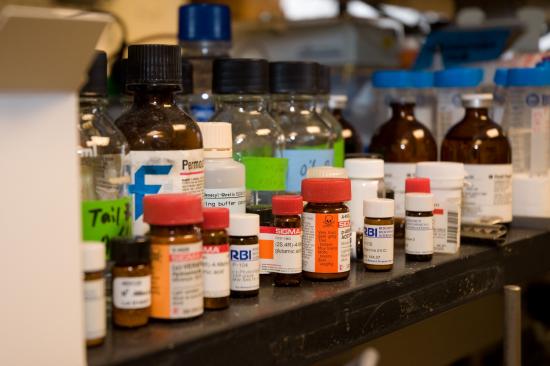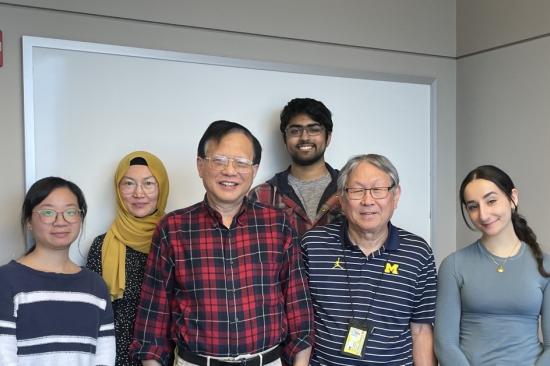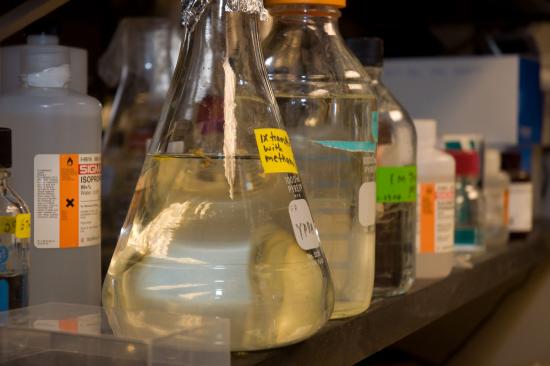The Translational Tumor Immunology Lab is advancing CSC immunity and cancer immunotherapy to overcome existing obstacles in several ways.
Cancer Stem Cell (CSC) Vaccine: CSC-specific Peptide Delivery by Nanoparticle
Since the demonstration of our CSC-dendritic cell (DC) vaccine in 2012, we continue to look for new ways to lessen constraints. Early work required tumor tissue samples from which to isolate CSCs in order to prepare cell lysates for exposure to antigen-presenting cells, e.g. DCs. This approach, however, is challenging for clinical translation since it requires patient-specific tumor (from which to isolate the CSCs) and blood samples (from which to derive dendritic cells).
Our current work overcomes these limitations by using the biomarker aldehyde dehydrogenase (ALDH) to identify CSCs. The CSC-derived ALDH peptides can be sensitized easily, and it eliminates the need to isolate CSCs from patient tumor tissue since the peptide — the antigen — is common among multiple cancer types and can be sensitized as “off-the shelf” product.
In addition, our collaboration for investigation of a nanoparticle delivery system eliminates the need to generate dendritic cells from patient blood. The nanoparticle delivery system we are working with has been used to deliver chemotherapy for some time, but our collaboration research represents the first use of the platform to deliver CSC peptides to induce immunity against CSCs in cancer immunotherapy.
These advances help make the vaccine feasible for clinical translation as an off-the-shelf therapy for treating many types of cancers in combination with conventional treatments.
To date, we have demonstrated efficacy of the vaccine in small animal models and we’re currently conducting toxicity testing in preparation for clinical trials.
Further Exploration of B Cells & Antitumor Immunity
Our current work continues to expand our understanding of the role B cells play in the immune response to cancer, a role that has been underappreciated until recently. Our research builds on our previous findings showing B cells are key players in humoral immunity against cancer, and that the combination of humoral and cellular immunity further improves the antitumor response. We continue to identify the mechanisms of B-cell anticancer immunity and the mechanisms that regulate it.





